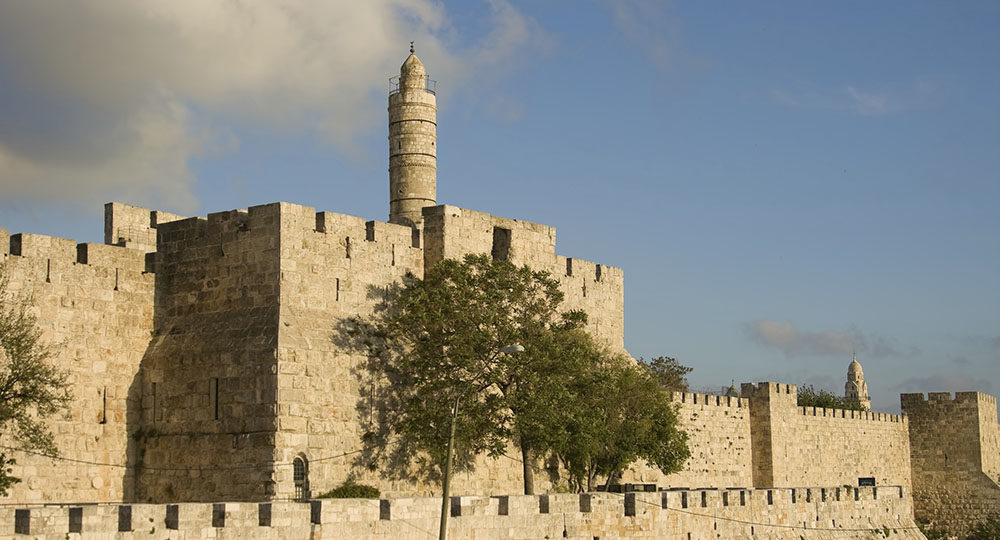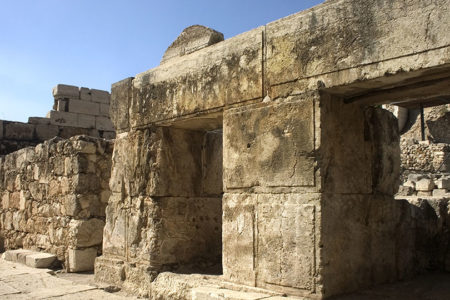Rebuilding the City of Gold
Music is a powerful medium. A few notes can swell your chest with pride and bring you to your feet. Other notes can make you cry. Recently a few notes carried me far, far away as I listened to the chorus of the beautiful Israeli song Yerushalayim Shel Zahav, “Jerusalem of Gold.”
The lyrics come directly from the Hebrew Scriptures: “If I forget you, O Jerusalem, let my right hand forget its skill!” (Ps. 137:5). Such powerful love for a city is something divinely implanted into Jewish hearts. Most Jewish people have an indelible identification with and passion for the city of Jerusalem.
Nehemiah had this passion too. Surrounded by enemies, he took on the difficult job of rebuilding the ruined city’s walls; and with God’s help, he prevailed.
Nehemiah was cupbearer to King Artaxerxes I, the sixth ruler of the Medo-Persian Empire. While in Shushan the citadel, Nehemiah’s brother Hanani came to him with men from Judah and reported on Jerusalem’s status and that of the Jewish people who had returned home (Neh. 1:1-2). (See the chart on page 26.) The report was anything but encouraging.
Nehemiah learned the Jewish remnant in the land was “in great distress and reproach. The wall of Jerusalem is also broken down, and its gates are burned with fire” (v. 3). The news devastated him. He “sat down and wept, and mourned for many days…before the God of heaven” (v. 4). Like many have since, Nehemiah cried over Jerusalem.
As the king’s cupbearer, Nehemiah had regular access to Artaxerxes. It was imperative that he never go before the king looking sad or down-hearted because such a countenance was forbidden. However, as Nehemiah entered the king’s presence, his sadness was evident; and he “became dreadfully afraid” (2:2).
He told the king, “The city, the place of my fathers’ tombs, lies waste, and its gates are burned with fire” (v. 3).
The king asked, “What do you request?” (v. 4). Nehemiah prayed and then asked permission to go to Jerusalem to rebuild the city walls. Artaxerxes granted his request and gave him letters confirming Nehemiah’s authority, in addition to giving him “captains of the army and horsemen” (v. 9).
Troublesome Times
Upon his arrival Nehemiah conducted a secret nighttime inspection of Jerusalem’s walls. The next day he encouraged the city’s residents:
“Come and let us build the wall of Jerusalem, that we may no longer be a reproach.” And I told them of the hand of my God which had been good upon me, and also of the king’s words that he had spoken to me. So they said, “Let us rise up and build.” Then they set their hands to this good work (vv. 17–18).
Whenever there is great spiritual blessing, there is often trouble and testing. Such was the case for Nehemiah and his crew. When Sanballat the Horonite and Tobiah the Ammonite heard Nehemiah and the Jewish people were rebuilding the walls, “they were deeply disturbed that a man had come to seek the well-being of the children of Israel” (v. 10).
At first they simply mocked the Israelites, insulting them and belittling the work. When that tactic failed, their opposition became more sinister: “They became very angry, and all of them conspired together to come and attack Jerusalem and create confusion” (4:7-8). They told themselves, “They [the Israelites] will neither know nor see anything, till we come into their midst and kill them and cause the work to cease” (v. 11).
The Jewish people were scared, but Nehemiah “arose and said, . . . ‘Do not be afraid of them. Remember the Lord, great and awesome, and fight’” (v. 14). Nehemiah reminded them who was on their side. The Lord, the sovereign God of the universe, protects His people during spiritual attack; and this was a spiritual war.
The Real Opposition
The book of Nehemiah does not directly implicate Satan, but it seems clear he was behind the plot to thwart God’s work. Jerusalem is special to the Lord, who has declared, “See, I have inscribed you on the palms of My hands; your walls are continually before Me” (Isa. 49:16). Scripture also calls Jerusalem “the city of the great King” (Ps. 48:2).
Because Satan wants to be God (Isa. 14:12–15), it follows that he wants that which belongs to God. The land of Israel belongs to the Lord, and His love for it is so special that Moses told the Israelites, “The land which you cross over to possess is…a land for which the Lᴏʀᴅ your God cares; the eyes of the Lᴏʀᴅ your God are always on it, from the beginning of the year to the very end of the year” (Dt. 11:11–12).
This is why the battle for Jerusalem has been a historical constant. Jerusalem’s destiny has been predetermined by God, as King Messiah will reign and rule over the entire world from the city of gold.
Ultimately, Nehemiah’s enemies tried to kill him (Neh. 6:2), to slander the Jewish people, and to hire a false prophet to issue lies (vv. 10–14). But Nehemiah prevailed, and “the wall was finished on the twenty-fifth day of Elul, in fifty-two days” (6:15). This tremendous feat testifies to the power of God.
Despite Satan and his earthly emissaries, the walls were finished in record time; and the Jewish people were able to worship the Lord in “the place where the Lᴏʀᴅ [their] God…put His name for His dwelling place” (Dt. 12:5).
Today Israel continues to struggle to hold on to its land and beloved city. Enemies surround the nation and continue to attempt to separate God’s people from their Promised Land. But the Lord will triumph, as He did in the days of Nehemiah. For the time being, the Messiah is seated at the Father’s right hand until His enemies become His footstool (Ps. 110:1). But the day is coming, as God promised, when He will fulfill His role as King of kings and Lord of lords and reign over all the earth from Jerusalem of gold.







